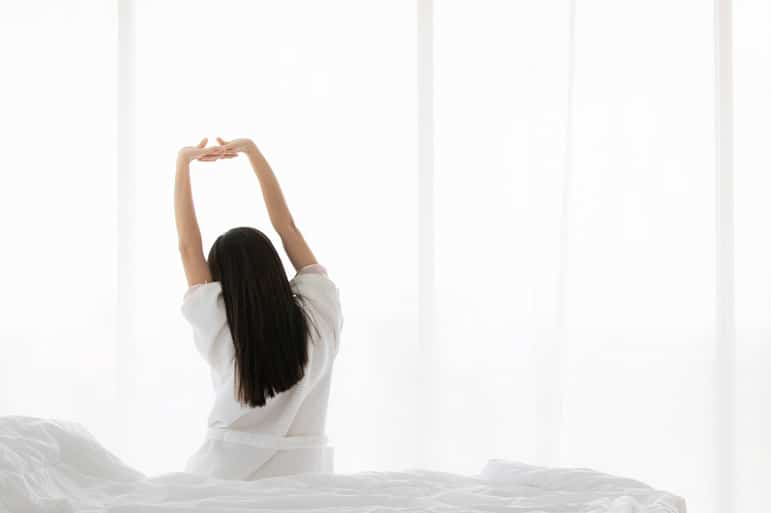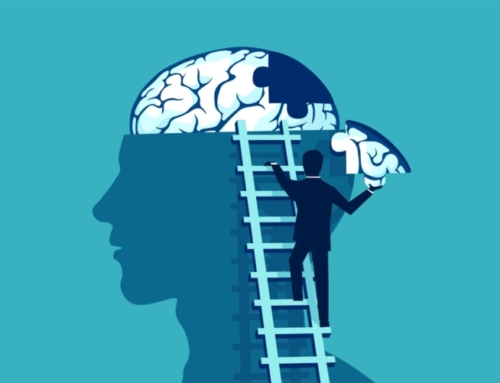Earlier this year I held a barbecue. After I finished the last of my grilling, I walked over to a knot of friends on one side of my deck. They said, “Jack, we were just talking about happiness and how much unhappiness there seems to be. You’re a psychiatrist. What do you think is the best way to be happy?” I both grimaced inside—I’m sure most of us have faced these types of requests—and I also thought, “Oh well, I’ll play along; I haven’t given thought to happiness in a while.”
I suppressed my first urge to tell my friends what research shows about happiness and instead, I decided to think this problem aloud with them. It went something like this:
One cannot will one’s self to be happy. Instead, happiness is an outcome that depends on a lot of other things. What things? Well, let’s start by considering a similar but simpler problem, like the problem of getting a good night’s sleep. Sleep, like happiness, is something you cannot will or decide yourself to have, but you can, of course, do something about it indirectly. What I can do is to set the conditions for good sleep. These conditions, whatever they are, need to occur before my desired time to fall asleep and be the kinds of things I have control over. I likely will have to add things to my day and maybe take things away from it.
Let’s say my problem is that I wake up after about 3-4 hours of sleep. I wake up because I feel hot all over my body and because my abdomen feels full. From this, I realize that I am eating too much too late in the day. So, I cut back and eat earlier. Let’s say my wife also tells me I toss and turn and snore a lot. I go to the doctor who diagnoses a moderate case of obstructive sleep apnea. I am to lose 15 pounds and come back to be re-evaluated. I decide I need to undertake further changes in my lifestyle and start eating less and healthier. I also notice that I wake up feeling dry in my mouth and realize I am not sufficiently hydrating. I start drinking more water during the day. The good news is I eliminate the dryness in my mouth and a certain amount of my tossing and turning. I realize part of my discomfort during sleep was due to my dehydration. A new problem arises, though. Now I wake up in the middle of the night to urinate. So, I make the further change of drinking less late in the evening while maintaining my overall level of daily fluid intake. I get it right and my middle-of-the-night sleep is much improved.
I notice that I often also have trouble falling asleep. I notice that I am wound up at bedtime from spending a lot of time reading the news, always about the many ways we are doomed. I decide to stop being a news junkie and to read only about the main news events and to do so for a limited amount of time and earlier in the day. I also avoid reading or listening to ‘pundits’ because their actual job is to get me and everyone else upset. I also notice that I have trouble falling asleep because my body feels like it needs to move. I decide I need to ensure I get in enough physical activity during the day. From these changes, I see that my sleep is improved, and this spurs me to make other changes. I start exploring different musical styles I can listen to as I wind down in the evening. I start reading on topics that make me more appreciative and grounded, something on the consolations of philosophy for example.
After all this, my sleep is much improved. And so is my life. I have undertaken a series of actions to arrive at a life that is more balanced and healthful. My sleep hygiene measures have paid off. I have undergone a series of changes that include sleeping better and having more energy while feeling calmer and more grateful for what I have.
What I have done is I undertook a series of actions—all under my control—and underwent a series of changed outcomes—things not directly under my control. So, the lesson for me is that I do have control over many aspects of my life, but often not directly. I cannot will myself into better sleep, gratefulness, greater energy, or deeper joy, but I can set the conditions for achieving such aspects of well-being. The second lesson I learned is that deciding to make a change in one part of the system, in this case setting out to improve my sleep, led to far-reaching changes to my life across all the hours of my day. The third lesson I learned is that well-being is often less about doing more of something and more about doing less of things that lead to poor sleep and to lower levels of well-being and happiness in general. A fourth lesson I learned is that achieving large and fundamental changes starts with paying attention to many little things and then undertaking many actions, often very small and easy to achieve.
So, just as I can use the concept of sleep hygiene to direct a series of actions to improve my sleep, I can use a version of this concept, “well-being hygiene,” to direct a series of actions to achieve a greater sense of well-being and happiness. A couple of more lessons I learned are that usually no one will ask or goad me to get happier—I must do it myself—and that making life better can start today and doesn’t require anyone’s permission or starting with monumental changes in my life.
Thanks,
Dr. Jack
Language Brief
“The attempt to escape from pain, is what creates more pain.” ― Gabor Maté
“We create our future self by default or design.” ― Nicole Cody
“Dear Pan and all you gods of this place, grant me that I may become beautiful within; and that what is in my possession outside me may be in friendly accord with what is inside.” ― Plato, Phaedrus
“Pure thought is a pleasureable therapy.”― Lailah Gifty Akita







Leave A Comment